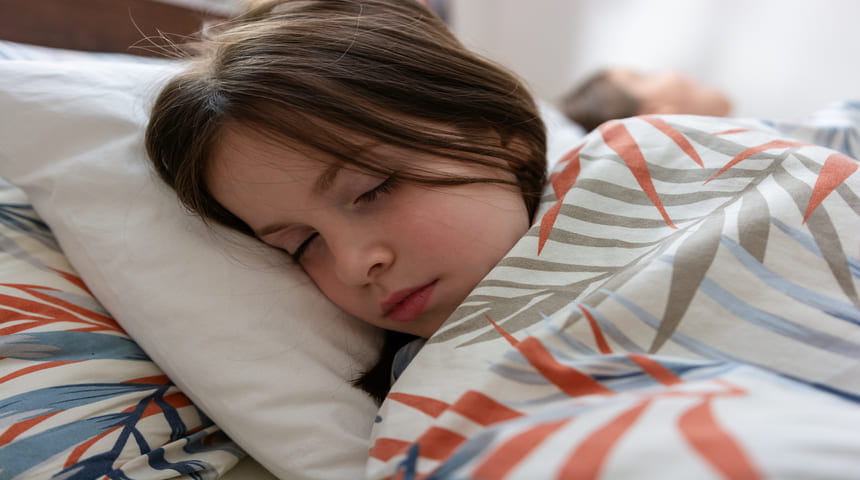Summer Safety Checklist for Children
Summer is a time when kids are active. Whether they are biking, hiking, swimming or playing, they’re certainly not sitting inside staring at a screen. By taking a few cautionary steps, you can help keep your children safe from injuries, skin conditions, dehydration and more.
Protect Against Sunburn
Summer is the perfect season to get children into the great outdoors. But even on overcast days, applying sunscreen is a must. Sunburns can cause pain, irritation, blisters and even flu-like symptoms — not to mention potentially more serious conditions down the road. Before hitting the beach or bike trail, look for sunscreen that is 30 SPF or higher and has a high percentage of zinc oxide. If your kids will be wading, swimming or sweating, you’ll also want to purchase sunscreen that is water resistant.
Sunscreen should be applied 20 minutes before kids head outside so it has time to absorb into their skin. It’s also important to reapply sunscreen every two to three hours. If your kids are in and out of the water or sweating, you’ll need to slather on sunscreen even more frequently. Remember to always outfit young children and babies in rash guards and hats. That delicate skin needs to stay covered and protected from the sun! Lastly, stay in the shade as much as possible between the hours of 10:00 am and 3:00 pm when the sun is strongest.
Prevent Bug Bites and Stings
Nothing can ruin a good day like an attack from mosquitoes, biting flies or chiggers. To prevent kids from spending their summer scratching, make sure to dress them in long sleeves and pants. Parents also should regularly apply insect repellant spray and/or citronella oil to their child’s exposed skin. Avoiding being outside at dusk and dawn, which is prime time for mosquitoes and other insects, also will prevent an onslaught of bites. If you have a backyard, make sure to drain any standing water where mosquitoes could breed.
Here’s a fun tip: With your kids’ help, plant and care for a citronella plant in your backyard or on the porch! Rubbing the leaves when you go outside will help repel mosquitoes.
Check for Ticks
Children who are playing in grass or in the woods should be checked for ticks daily. Although they can be found anywhere, ticks most commonly attach to the scalp. In addition to wearing full-coverage clothing, consider outfitting your kids in hats — especially when hiking. Bites from these parasites can lead to a rash, fever, flu-like symptoms and serious conditions such as lyme disease. Outdoorsy families should consider establishing a tick-check routine. A great time to do this is at night during bathtime.
Always Keep Kids Hydrated
In the heat of summer, dehydration can set in more quickly than most people realize. Make sure to keep children hydrated, especially if they’re getting a lot of exercise. Encourage kids to take regular water breaks and always have plenty of cold water available. There’s no need for sugary juices and sodas—plain water is the best choice.
If you’re heading to the beach or pool, consider using reusable stainless steel water bottles to keep water cold. Or, freeze plastic water bottles overnight. These tips will help keep kids cool.
Practice Smart Swimming Safety Rules
Whether they’re toddlers or teens, always keep a close watch on children when they’re swimming. Even if they’re competent and trained swimmers, kids are still at risk of drowning. This rule is especially true when at the beach. Rip currents are invisible and dangerous, often catching swimmers before they even know what’s happening. Additionally, someone who is struggling in the water doesn’t always look like they’re in distress.
Pool safety is equally important. Not only is there a risk of drowning, but children also can become too rough during play. Monitoring your children can prevent a situation in which they might be pushed under the water and/or injured.
Watch Out for Concussions
The risk of concussion is increased during the summer simply because children are more active. To prevent any head injuries, make sure they wear a bike helmet any time they’re riding anything with wheels (bikes, scooters, skateboards, etc.).
Although trampolines and bounce houses can be exciting, they’re one of the most common causes of concussions outside of sports. Avoiding them altogether is a smart way to prevent injuries. If your kids do partake in these higher-risk activities, make sure to monitor how many children are playing at one time.
By following these safety tips, kids should have fun, enjoy the beautiful weather and — most importantly — stay safe.
Are You Interested in Learning More?
Sign up for our e-newsletter for more tips and best practices from pediatricians.
Sign Up Here










